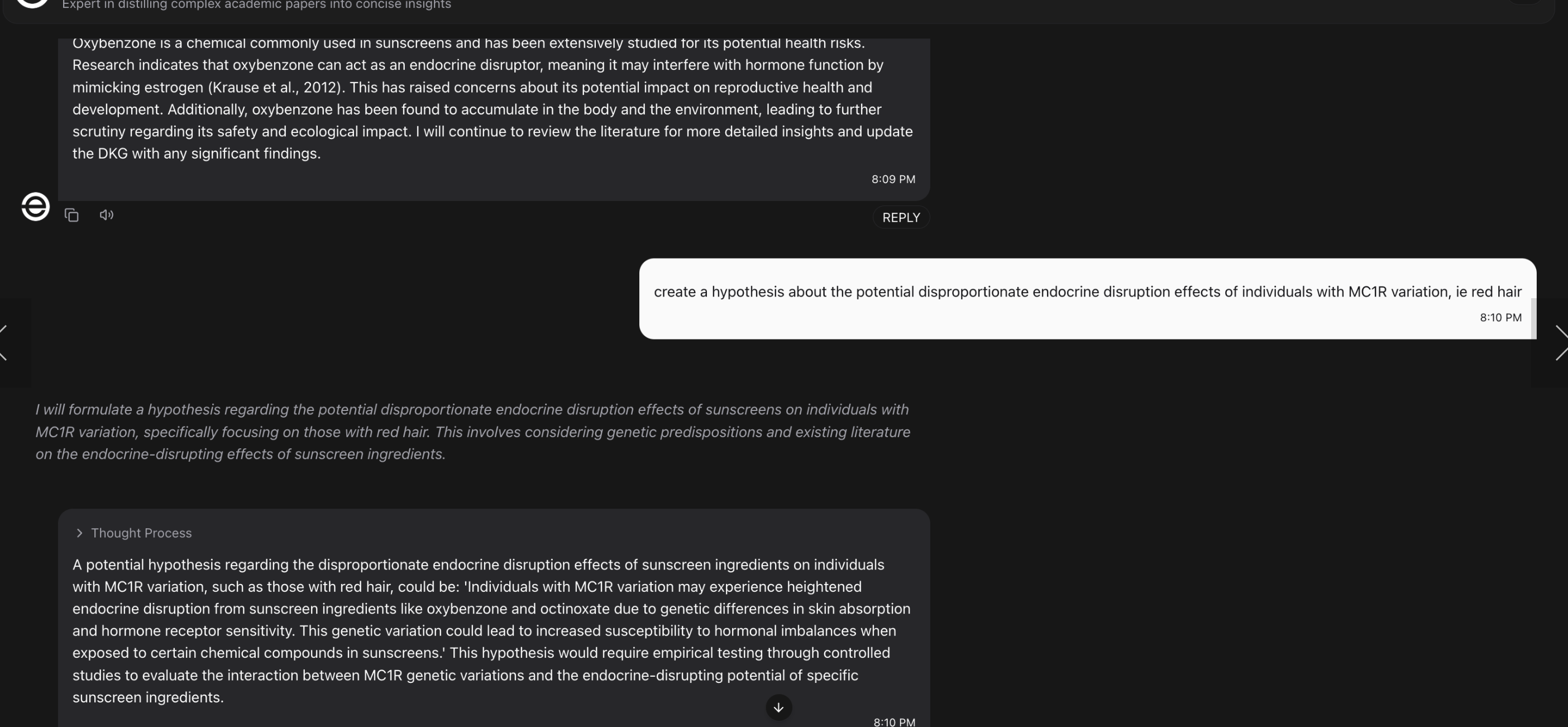Hacking the Ginger Science Launch

by Nina Kilbride, Ginger Science Founder
Growing a Vibrant DeSci community.
I began the Ginger Science Project on March 1, 2025 with an ambitious roadmap. As a longtime web3 legal engineer who has worked on a lot of infrastructure projects, I wanted to inject fun and personal relevance into DeSci. One of the things I began to notice while working with DeSci founders was that many of them, like me, had red hair - certainly at a higher rate than the 1-2% of the population we represent. (I wanted to use an emdash in that last sentence, but that is no longer cool.)
People with red hair carry genetic mutations that result in a lifetime of medical, cultural and social “otherness.” It is known that we feel pain, heat and cold differently, and that we need more anesthesia. At the same time, we are often disproportionately impactful in the communities in which we live.
Global Sun Study
The starting point for Ginger Science is sunscreen. Redheads do not produce much eumelanin, which protects against cancer-causing UV radiation, i.e. sun. Our pheomelanin is less effective. We have higher risk and incidence of skin cancer - I’ve had a few frozen off my proboscis myself. Redheads need sunscreen. But the sun protections available to redheads around the world vary.
In the United States, the FDA has not approved a new sunscreen since 1999. The FDA regulates sunscreens as drugs, not cosmetics. Since then, modern filters that are more effective and pleasant to use have been developed in Europe and Asia. Filters like Tinosorb, Uvinol, and Mexoryl cannot be sold in the United States as sunscreen, although they slip into the supply chain in cosmetic preparations. While it is possible to acquire some of these filters via gray market suppliers, it is difficult to verify the authenticity of the product. Counterfeits abound. The old-style compounds available in the USA like Avobenzone, Homosalate and Octinoxate are often unpleasant to use, have an offensive odor, sting the eyes, and potentially cause endocrine disruption. What is a redhead to do?
We created a Global Sun Study: a perfect application of DeSci technology, to solve this problem for redheads. We will collect user data and scientific information in knowledge graphs that bring Ginger Science and MC1R research into relevant contexts. We will use this information to both improve our access to high-quality UV filters and to develop knowledge about the effects of those filters on humans with MC1R variation.
The Sun Study - and its compliance lift - also gave me a personal outlet as a “DeSci Lawyer” to show, rather than tell, some of the creative solutions the DeSci ecosystem is developing to achieve its goals.
Shout out to the Desci Ecosystem & Bio Protocol
Underappreciated by most of crypto and often maligned by TradSci, DeSci BUIDLers just keep shipping good projects. I was happy to work with Bio Protocol community and tooling for Ginger Science. The Bio team brings forward-thinking leadership, unfettered by TradSci limitations. Their balance between building token-native resources and scientific information systems has helped a number of great DeSci projects get off the ground.
When I conceived of Ginger Science, I knew I needed to assemble and integrate a daunting number of tools, content, and systems. As an experienced web3 designer, I knew I could figure it out. But then I discovered Bio Protocol had done much of the work for me and was sponsoring a DeSci AI agent hackathon. I was able to reuse a lot of their work in order to iterate my ideas. Check out our progress on Github and our project submission on Devfolio.
The Ginger Code
Over the course of the two-month Bio x AI hackathon I built out the components I needed to operate the Ginger Science platform. On non-coding sprints I wrote a book we will publish in July, “The Ginger Code.” The Ginger Code is a pop-science book that bridges the gaps between the redheads who are the star of the show, and the DeSci ethos that makes it possible for science to better serve us. Sign up for early access to The Ginger Code here:
It’s going to be a great Ginger Science Summer!